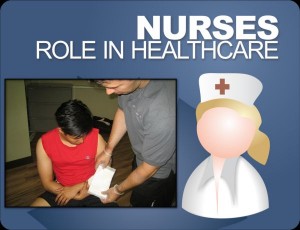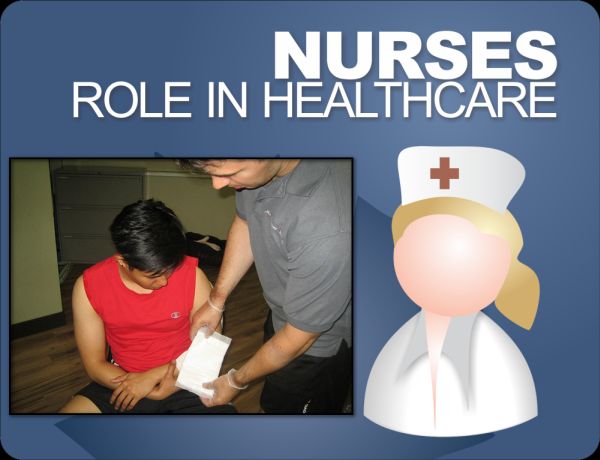The role of the nurse during a disaster will vary depending on the perceived and actual needs of the people seeking care. The nurse may be asked to perform duties outside of his or her area of expertise and responsibilities and may take on tasks normally held by specific members of the health care team due to the short staffing and overwhelming number of people coming in the emergency department in the event of a disaster.
The role of the nurse in times of disaster is not only limited to the usual assessment and performing nursing related procedure within hi/her scope and responsibilities. In disasters that causes a surge of patients with grave and minor injuries will ultimately test the nurse’s flexibility in performing various tasks. For example, a critical care nurse will have to perform intubation or even insert a chest tube drainage if appropriate. Wound suture and debridement or suturing may be performed by staff registered nurses and a nurse can also be delegated with the task of being the triage officer in the ED who will monitor the classification and reclassification on incoming patients.
The role of the nurse which cannot be delegated
Although the exact role of a nurse in disaster management is highly dependent on the specific needs of the facility at that point in time during the peak of the disaster event, it should be clear to the nurse as well as another member of the health care team (physicians and allied medical services) will be in charge of a given patient care area and which procedures each nurse is allowed to perform independently or with the supervision of the physician leading the ED team. Assistance can be obtained through the incident command center, and non-medical personnel can provide additional services where possible. For example, family members can be delegated with non-skilled intervention for their love one such as encouragement and emotional support. Nurses should, however, remember that nursing care in a disaster focuses on essential care from a perspective of what is best for the majority of the patients.
The role of the nurse in caring for families
Friends and family members converging on the scene must be cared for by the 
The role of the nurse in cultural considerations
Any disaster or mass casualty incident can be expected to involve members of diverse cultural, ethnic and religious sub-groups or may be targeted at and predominantly affect specific religious or ethnic groups. Health care providers likewise include members of all religious, ethnic and cultural backgrounds and should bear in mind that victims may have:
- Language difficulties that increase fear and frustration.
- Specific places and time for prayer.
- Specific religious practices related to medical treatment, hygiene and diet.
- Rituals in handling the deceased.
- Timing of funeral services.
Some religious communities have plans for emergencies and disasters, and local hospitals should integrate these plans to the extent possible into their emergency operations plan. More importantly, the role of the nurse in caring for a diverse cultural sub-group should be guided by the principle of universal health care regardless of cultural diversity.

